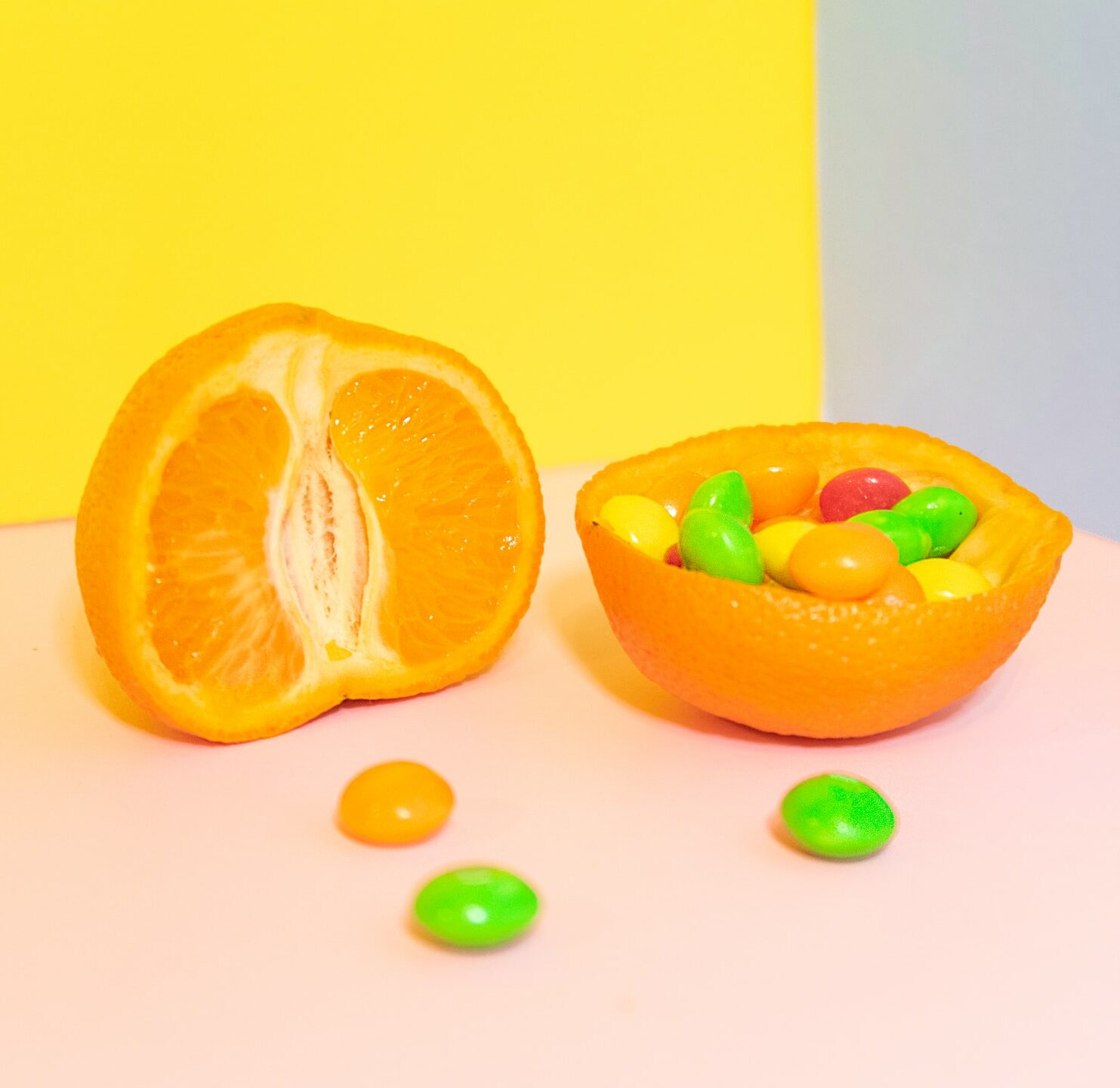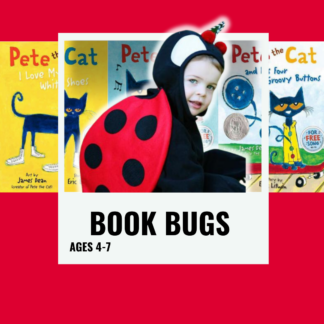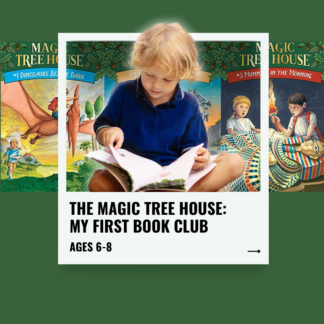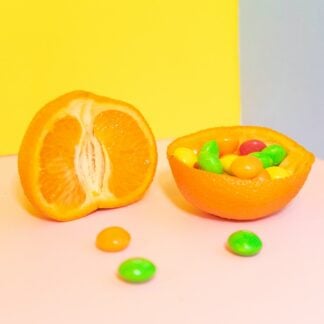Description
? ?️ Ready? Set! Go! As elementary school concludes, it’s time to gear up for the writing challenges awaiting students in middle school English language arts. As a secondary teacher, Mrs. Lemons crafted a purposeful curriculum tailored for upper elementary learners, ensuring a seamless transition into the intricacies of middle school writing. This class aims to equip students with an understanding of diverse writing genres, guiding them in adapting their writing style according to purpose and audience. Explicit grammar instruction, with a focus on sentence combining and punctuation, fosters sophistication in written expression.
? ???? ????? ???? ????? ????????
Your learner benefits from explicit instruction, modeling, and the addition of authentic, thoughtful, and constructive feedback from the instructor. Each week, learners engage with various writing genres—creative, expository, argumentative, research-driven, poetic, technical, scientific, historical, and more. Utilizing Google Docs enhances their digital writing skills, promoting proficiency in typing and formatting, mirroring practices in upper-grade levels.
? ???????, ?? ??? ???!
Although parents are equipped and have wise feedback for their children, students often take constructive criticism from a teacher with less resistance. Recognizing this familiar dynamic, our teachers integrate feedback and evaluation into live class interactions and homework submissions. This alleviates the burden on parents who may find it challenging to provide constructive criticism. By optimizing teachers’ time on this crucial task, we ensure that students receive valuable input from a supportive and skilled perspective so students benefit from the feedback/revision process.
? GOOD NEWS–We had parent requests to extend the number of classes, and we listened to you! So, we developed more curricula, and this course covers a year’s worth of writing! We have a comprehensive curriculum for 49 weeks! Note: classes that begin in September are easier than the classes at the end of the summer. There is a comprehensive scope and sequence. Additionally, the classes stand-alone each week, so you can pop in and out as you like!
⛳️ ?????? ?????? ??????? ???? ??????-??? ????????
We have a number of offerings that are good for learners with different needs! To see a comparison chart of our middle school English language arts offerings, click the link: https://drive.google.com/file/d/1C4kPDI-gpxZD1Lap7vwqW9QwWsqQSwZ0/view?usp=sharing
? WEEKLY SCHEDULE: Pop in and out as you like!
➰➰➰➰➰➰➰➰➰➰➰➰➰➰➰➰➰➰➰➰➰
? THE 2023-2024 SCHOOL YEAR ?️
➰➰➰➰➰➰➰➰➰➰➰➰➰➰➰➰➰➰➰➰➰
✅ The week starting Mar 17: Just the Facts! The Straight News Article. Students will learn the elements of a straight news article, read examples, and sort details according to how important they are. Then they grab their reporter’s notebook and watch a surprise event unfold. Their job will be to write their own straight news article with organized and sorted facts and without any bias.
✅ The week starting Mar 24: The Op-Ed. After reading examples, they jump right in as editorial journalists. They learn how to see both sides of an issue, introduce facts and evidence, and refute the opposing argument in their own opinion article. The topic is high-interest and many students have passionate opinions!
✅ The week starting Mar 31: Email Etiquette. Is email a dying form of communication? Certainly not, especially in education and business. Students learn email etiquette, such as having the right attitude, using professional words, choosing the correct style, and including the proper parts of a professional email. Keeping their audience and purpose in mind, students learn how to deal with a problem by addressing it head-on in a polite email.
✅ The week starting Apr 7: The Better Book Review. Book reviews are everywhere, and students read them a lot! They read them on amazon.com, on other websites, they hear from friends, and they have to decide if they want to read the book. We will look at various book reviews from different places to see which book reviews are good and which ones are not; students will come up with a list and outline for writing their own book reviews.
✅ The week starting Apr 14: It’s Greek to Me! The Drama. It’s time to break out the Greek mythology! Students will read a short drama, learning how dramas are written. They will rewrite the ending to one drama, practicing with the unique structure.
✅ The week starting Apr 21: Technical Writing, Simplified. Have you ever heard of Wikipedia Simple? While focusing on technical writing, integrating precise instructions, content-specific vocabulary, and a clear process, students will write a Wikipedia Simple page explaining how to do something they’re good at: mounting a horse? Tap dancing? Shooting a hockey puck? Playing a video game? It’s a hard genre of writing but they will learn to break down a sequenced process and communicate in writing.
✅ The week starting Apr 28: The Personal Narrative. What is the meaning of life? We probably won’t discover the answer to that question, but students will think of a significant memory in their own lives and pull out the deeper meaning, reflecting, thinking, remembering, and then will write a memoir, a personal narrative. While doing this, they learn to blend important narrative elements such as dialogue, thoughts, feelings, action, and descriptive writing.
✅ The week starting May 5: The Response to Literature. Writing a response to a piece of literature is more than just saying whether it was good or not. Students will read a piece of literature and learn to use textual evidence to answer a question. This is forming a foundation of argument writing and literary analysis, and the practice of this genre of writing prepares students for the most difficult writing they will do in secondary English classes. I break this down for students so they understand the difference between an argument, evidence, and analysis, but in age-appropriate terms.
✅ The week starting May 12: The Blog. Based on a real-life travel experience or on a virtual field trip, students become travel bloggers, detailed, casual, and with great personalities. We explore the genre of the blog and how different it is from formal pieces of writing. Students learn to write to a specific audience and how to modify their writing stylistically so that their blog is informal and interesting to read. This opinion writing teaches students to use specific details in their writing as well. I always travel to Bermuda, my favorite place on the planet, in my mind and in my model blog, and students can go anywhere they want virtually!
✅ The week starting May 19: Elaboration Techniques in an Expository Paragraph. Have your kiddos ever said, “I don’t know what to write?” They stare at a blank page or a blinking cursor on the computer as their mind draws a blank. They need to be taught how to elaborate, to write more, much more. Students will use information and data to write a well-developed, fully elaborated main idea paragraph. They will learn how to ask themselves elaboration questions to guide their thinking and writing so that they have rich, specific details, descriptions, and reasoning in their paragraphs.
✅ The week starting May 26: Create it, Write it, & Sell it! Learners become inventors and advertising executives as they develop their own products and then write ad copy to sell them. While doing so, students will learn elements of persuasive writing and create an advertisement with convincing techniques. Will they create a magical mini-dinosaur that does their homework? Or will they create flying shoes that will take them through the air to a friend’s house? Their imaginations can run wild!
✅ The week starting Jun 2: Roadrunner Story-a Setting, Characters & Conflict. Inspired by Wile E Coyote and the Roadrunner, students will learn to establish a setting, develop characters, and design a conflict in narrative writing. We use video clips for inspiration and practice painting pictures with words. Beep! Beep!
✅ The week starting Jun 9: A Roadrunner Story–Narrative Writing. Inspired by Wile E Coyote and the Roadrunner, students will write a very short main event of a story, blending narrative elements. They practice writing action, dialogue, descriptive writing, and other narrative elements. You do not need to have attended last week’s class.
✅ The week starting Jun 16: A Roadrunner Story–Students write the climax and resolution of a roadrunner story. They will “Blend, Baby, Blend!” Students learn to blend all elements of narrative writing into a story of their own. They do not need to have attended last week’s class.
✅ The week starting Jun 23: Writing about a Historical People–The Who. We are preparing them for historical research and writing, but we’re breaking it down! This week, students learn how to look at a historical figure, take notes, then paraphrase the notes in a biographical piece we call the VIP Sketch.
✅ The week starting Jun 30: Writing about a Historical Event–The What & the How. We are preparing them for historical research and writing, but we’re breaking it down! This week, students learn how to look at a historical event, take notes, then paraphrase the notes in an expository piece informing the reader of a historical event.
✅ The week starting Jul 7: Writing about Historical Context–The Where. We are preparing them for historical research and writing, but we’re breaking it down! This week, students learn how to look at a map and its key and make sense of the importance of geography in historical research. Then they write an informational piece describing the place and why it was important to an event.
✅ The week starting Jul 14: Writing about Historical Context–The When. We are preparing them for historical research and writing, but we’re breaking it down! This week, students learn how to look at a timeline, take notes, then describe what led up to the main historical event, the timing of the main event, and what happened after the main event.
✅ The week starting Jul 21: Writing about Historical Significance–The Why or “So What?” We are preparing them for historical research and writing, but we’re breaking it down! This week, students think about the significance of the historical event by doing a little more reading, taking notes, and then paraphrasing their notes in an argumentative piece about the significance of a historical event.
✅ The week starting July 28: The How-to Piece. This is a technical piece of writing that forces writers to break down a simple process into its component parts. It takes some thinking and then organizing before they put their pens to paper. Just a heads-up to parents–this class will make your learners hungry! 🙂
✅ The week starting Aug 4: The Informational Essay. A building block of upper elementary and middle school writing is the informational essay! Scholars will write about their favorite person while learning to use elaboration techniques, descriptive writing, and more.
✅ The week starting Aug 11: The Simple Summary. Is this a literature lesson or a writing lesson? It’s both! Students will learn two different types of narratives and observe important characters, places, and objects, all in preparation for writing a simple summary. This requires analysis and concise writing skills.
✅ The week starting Aug 18: Descriptive Writing: an Object. Students will learn all sorts of things and it will be so super great. They’ll do awesome work. Ack! What did I just write? General, no-good words! Learners will understand why specific, clear, and strong language is important as they practice writing descriptively so that their readers develop a sharp, detailed picture in their minds.
✅ The week starting Aug 25: Descriptive Writing: Developing a Setting. These are not your average, everyday, boring places. The settings our writers will describe are unusual and other-worldly. They will have to use their descriptive writing tools to paint these word pictures!
? ? ? ? ? ? ? ? ? ? ? ? ? ? ? ? ? ? ? ?
? YOU’RE DONE! YOU DID IT! It’s time for Middle School!
? If you have finished these classes, ???? ?? ??? ???? ???? ???? ?? ??????? ?????????? similar to this one but more advanced: Smart Cookie
? To see a ?????????? ?? ??? ??? ?????? ?????? ??????? ?????????, both semester & ongoing, click here: https://drive.google.com/file/d/1C4kPDI-gpxZD1Lap7vwqW9QwWsqQSwZ0/view?usp=sharing
? ? ? ? ? ? ? ? ? ? ? ? ? ? ? ? ? ? ? ?
✅ The week starting Sept 1 Descriptive Writing: Developing a Character. It’s alive! Students will turn inanimate objects into walking, talking, and maybe even flying characters with detailed external and internal traits. They are authors creating their own unique characters.
✅ The week starting Sept 8: Descriptive Writing: Feelings. It’s hard to describe a feeling! But students will do it! They will write short passages using descriptive writing to SHOW a character with a feeling rather than just TELL us what a character is feeling.
✅ The week starting Sept 15: The Problem Story: a Focus on Conflict. We do not live in a perfect world, with perfect people, with perfect lives! The human story is one of conflict. In this lesson, learners will analyze the conflict in a Pixar Short, which takes some critical thinking. The conflict is not so easy to discern without looking a little deeper. They will use this lesson to create a conflict between two characters. They can be characters they have developed on their own, or they can use well-known characters but in a different conflict.
✅ The week starting Sept 22: The Problem Story: Blend, Baby, Blend. The grammar and punctuation of using dialogue is tricky! But using dialogue in a narrative is a lot more than just what people say! Students learn to give their characters voices by writing dialogue while blending other important narrative elements. They learn to BLEND, BABY, BLEND!
✅ The week starting Sept 29: The Memory Story: a Personal Narrative. Learners should come to class with a very special object for show-and-tell. The object should be meaningful and be associated with a memory. If they forget to bring one, they will be able to run off from class and grab something. It usually just takes a few seconds. This will be the inspiration for writing a memoir, or the “memory-story” we’re calling it at this age. In class, we will read an example memoir for even more inspiration.
✅ The week starting Oct 6: The Biographical Sketch. This mini-biography will bring our little writers closer to someone they know. They will learn about a favorite adult through an interview, then they will write the true story about that life. Of course, this will come after they read a sample biographical sketch!
✅ The week starting Oct 13: The Fable. We all know those memorable characters we meet in fables. Fables are different from other stories, and that’s not just because they teach a moral. They are written with certain characteristics. Our scholars will read fables to understand the genre, then they will write their own!
✅ The week starting Oct 20: The “If I Were…” Poem. Just like artists use tracing paper to learn different strokes and artistic techniques, authors can mimic beloved poetry to learn poetic elements and stretch their creative muscles. Writers will write the “If I Were…” poem this week. I will warn you though. This lesson, along with the next one, has been known to develop passionate poets! You have been warned.
✅ The week starting Oct 27: The “New Animal” Poem. Again, poetry does not have to be scary! It’s fun to bend language, learn to rhyme, and develop and maintain a rhythm. Again, lifelong poets are born in this lesson.
✅ The week starting Nov 3: The Pet Essay. Do you have ferrets? Parakeets? A pet stuffy? Students will learn the aspects of expository writing as they write a three-paragraph essay on what it’s like to own a pet. They will especially learn to organize and how to elaborate. No easy tasks! But, they will do it and do it well!
✅ The week starting Nov 10: Writing about a Literary Character. This class is a combo of literary analysis, critical thinking, and writing. Students watch Pixar Shorts, analyzing a character for his external and internal traits. This teaches them to look closely at a narrative, evaluate a character, and analyze the author’s craft of character development.
✅ The week starting Nov 17: Writing about a Literary Character. This class is a combo of literary analysis, critical thinking, and writing. Students watch Pixar Shorts, analyzing a character for his external and internal traits. This teaches them to look closely at a narrative, evaluate a character, and analyze the author’s craft of character development.
NOV 24 – 30: NO CLASS
✅ The week starting Dec 1: The TEE-it UP Opinion Essay. Using fairy tales and fables, students learn to discern an issue, what side of the issue is presented in the literature, and then respond to that literature with their own opinion. Opinion writing is a type of argument writing and this lesson starts to build a foundation of writing and supporting arguments.
✅ The week starting Dec 8: Another TEE-it UP Opinion Essay. Using fairy tales and fables, students learn to discern an issue, what side of the issue is presented in the literature, and then respond to that literature with their own opinion. Opinion writing is a type of argument writing and this lesson starts to build a foundation of writing and supporting arguments.
Dec 22 – Jan 4: NO CLASS
✅ The week starting Jan 5: The Literary Analysis Argument Essay. Easy as A-B-C. Here we go! We are working on argument writing and how to support arguments with details from narratives.
✅ The week starting Jan 12: Another Literary Analysis Argument Essay. Easy as A-B-C. Here we go! We are working on argument writing and how to support arguments with details from narratives.
✅ The week starting Jan 19: The Gift of Poetry. It’s all about the verbs in this poetry lesson. We won’t rhyme, but we’ll segment poetic parts and create a couple of poems that can be given as gifts. Parents might want to wait to watch this recording for a couple of weeks. 😉
✅ The week starting Jan 26: The Imitation Poem. Have you ever placed a piece of tracing paper over a picture to learn how to draw something? This is sort of what we’re doing in these two classes. Students will study classic poems while learning about poetic devices (metaphor, personification, & rhyme). Then we place that tracing paper, or rather, we imitate the poems but use new ideas. This helps students look deeply and analytically at a poem while trying their pen at using the same poetic devices and techniques.
✅ The week starting Feb 2: The Imitation Poem, Again. Have you ever placed a piece of tracing paper over a picture to learn how to draw something? This is sort of what we’re doing in these two classes. Students will study classic poems while learning about poetic devices (metaphor, personification, & rhyme). Then we place that tracing paper, or rather, we imitate the poems but use new ideas. This helps students look deeply and analytically at a poem while trying their pen at using the same poetic devices and techniques.
✅ The week starting Feb 9: The Argumentative Piece. It’s time to stake your claim! This is the beginning of argument writing. After brainstorming two sides to an issue, students stake their own claim and then support it. Elaborating by asking three important questions help learners generate ideas. Additionally, they learn how to consider the alternate side of an issue and then how to refute that argument.
✅ The week starting Feb 16: The Literary Analysis Piece. We will use short sketches, which students love, to learn literary terms, then we will write an analytical paragraph as a class. They will practice doing it themselves for homework.
✅ The week starting Feb 23: The Literary Analysis Piece. Is it a reading class or a writing class? It’s both! Learners will read a piece of literature, learn a couple of literary terms, then write an analytical paragraph as a class. They will practice doing it themselves for homework.
✅ The week starting Mar 2: The Elevator Summary. After learning the important plot points in a narrative such as exposition, inciting incident, rising action, etc., students will learn how to succinctly write a summary of a narrative without rambling, giving away too many details, and missing the main idea. I call this the elevator summary because it has to be short enough that you could say it in the time it takes to ride the elevator up one floor! This is a literature and writing combo class.
✅ The week starting Mar 9: The Elevator Summary, Again. It’s tough, so we need to practice some more! It’s okay if students missed last week because we teach it again. If students attended last week, they need the repetition! After learning the important plot points in a narrative such as exposition, inciting incident, rising action, etc., students will learn how to succinctly write a summary of a narrative without rambling, giving away too many details, and missing the main idea. I call this the elevator summary because it has to be short enough that you could say it in the time it takes to ride the elevator up one floor! This is a literature and writing combo class.





